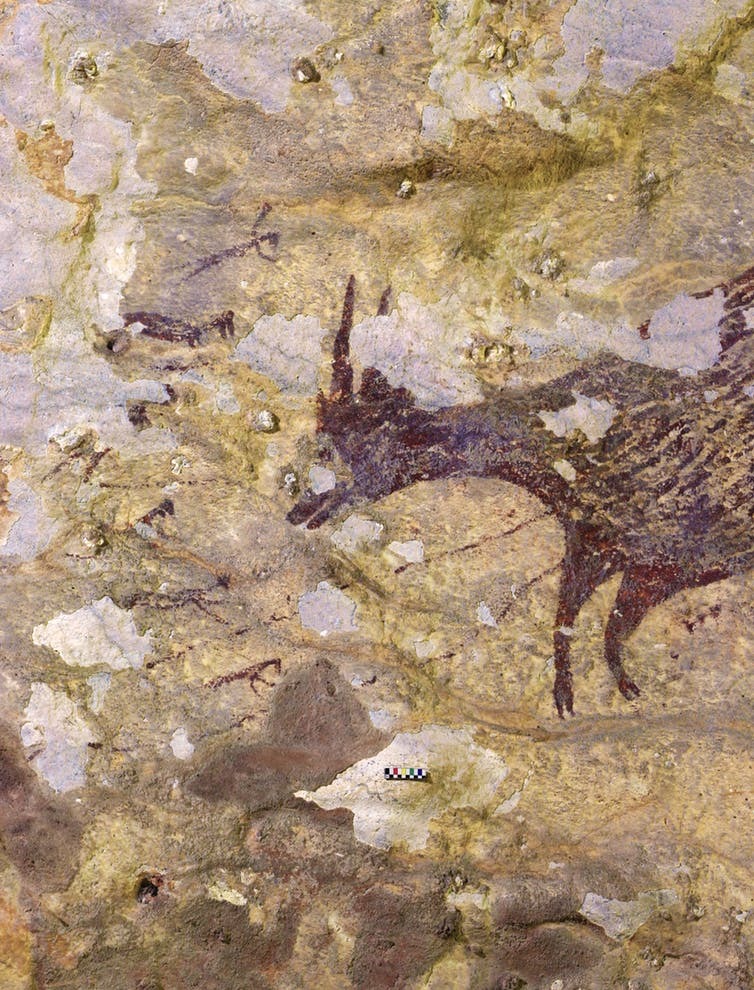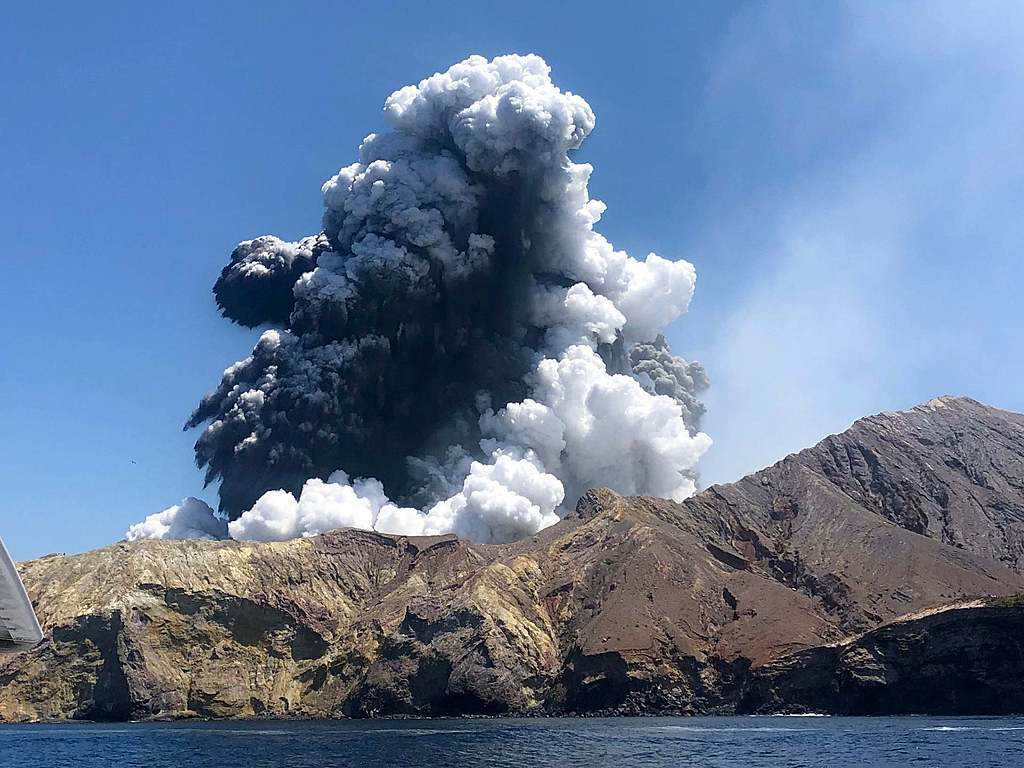
- Trump had wins with a China trade deal and the USMCA
- A crucial impeachment vote was postponed until next week
- Bougainville voted overwhelmingly to become the world's newest nation
- The EU pledged to reach net-zero emissions by mid-century
- Failed negotiations sent Israel back for a third election in a year
- Russia was banned from international sports for four years
- Extensive and prolonged blackouts disrupted South Africa
- 34-year-old Finn Sanna Marin became the world's youngest leader
- Kyiv and Moscow at last resumed talks over eastern Ukraine
- A proposed Korean ship-builder merger drew plenty of criticism
Deep Dive

This week India passed a controversial bill that opens the door to citizenship for recent migrants of every faith, bar muslims.
The measure of a citizen
On the surface the Citizenship Amendment Bill aims to right some historic wrongs. That is, to provide a fast-track to citizenship for immigrants who arrived in India from Pakistan, Afghanistan and Bangladesh before 2015. For most of the second half of the 20th century at least one, and often two, of those countries were riven by civil strife. There are, in short, a great many Hindus, Buddhists, Christians, Jains, Sikhs, and Parsis who will benefit from New Delhi's beneficence. But India's ruling BJP party decided that the law would only focus on immigrants who had left those three countries to escape religious persecution. And since all three countries are majority muslim, the law does not apply to muslims. This is not only a vast oversimplification but also a misleading characterisation. Minority muslim sects are in fact some of the most persecuted peoples in those countries. This week the bill passed both houses of parliament and received presidential assent – making it an official Act.
It could be argued that this kind of singling-out is exactly what the authors of India's constitution had made laws against. It does not merely contravene some obscure reference in the constitution in an abstruse way – it directly contradicts the letter and spirit of Article 14 : 'The State shall not deny to any person equality before the law or equal protection of the laws within the territory of India'. No real effort has been made to reconcile this. It could also be argued that the new law is linked to the citizen's register in Assam which was compiled this summer and omitted some 1.9 million immigrants. This new law selectively benefits the non-muslims in that number (by reversing their exclusion), and leaves only the muslims stateless. The same citizen's register is also due to be rolled out nationwide before 2024.
The latest Act also comes on the heels of the suspension of Article 370, the special amendment that granted Kashmir – India's only muslim-majority state – a degree of autonomy. The suffocating military presence in those Himalayan cities and towns is a highly-visible strain on Kashmiri muslims, but even so it is not the most impactful tool at New Delhi's disposal. That would be the revocation of a law that prevented non-Kashmiris from owning land in the region. Its removal opens the door for non-muslims to migrate to Kashmir, altering the demographics of the state. Such strategies are known as ethnic-flooding ; something China has perfected over the border in Tibet and is deploying today in Xinjiang.
Hindutva and the ethno-state
India's cultural heritage is an overwhelming and dazzling tapestry. A full 17% of the human race lives there. They speak 22 major languages and 720 dialects, belong to over 2,000 discrete ethnic groups and practice just about every one of the worlds major religions. Not all of it is being flattened into muscular Hindu nationalism – Buddhists, Jains and Sikhs are considered traditionally Indian religions, for example. All of them are tethered to their land and culture through history; artefacts, practices and sites of worship. These are exactly the things that are inceasingly being denied to Indian muslims.
The Babri Masjid at Ayodhya was torn down by Hindu zealots (led by BJP founder Lal Krishna Advani) in 1992 to avenge a Hindu temple upon which the mosque was believed to have been built. In its recent decision the Supreme Court acknowledged that there was evidence that the site had not been vacant when the Babri Masjid was constructed, and therefore handed it back to the Hindus. Indian muslims may well be feeling like they are being brought to heel by pick-axe, lynching rope and official diktat.
In a similar vein to the Indian ruling, the government of Myanmar too justified the ethnic cleansing of Rohingya by describing them as new arrivals, as though they are still interlopers - two centuries after arriving. We are rightly sceptical of such ahistorical perspectives. But consider this: the Delhi Sultanate ruled most of what is today India from 1206 to 1526, at which point they were replaced by the Mughals – another muslim empire – who ruled for another 300 years. And it was the sacking of this Mughal empire by an Iranian ruler (Nadir Shah) that weakened India sufficiently to then allow the British to get a toe-hold in the country. All of which means that more than half a millennia of history is being hemmed in, redefined, neutered and neutralised.
Worldlywise

Boris wins big
The polls showed a whopping Tory victory and for a nice change the pollsters actually delivered. Boris Johnson has retained his perch at 10 Downing Street in style, with a victory for the record books: an 80-seat majority in the Commons (at time of writing) and decisive wins deep in Labour's northern strongholds. Sometimes the numbers don't lie: Labour lost 59 seats and the Tories picked up 42. The Brexit vote split both political parties down the middle, and some aggressive campaigning helped win over the traditional Labour voters who opted to Leave. The most important vote in a generation was a blow-out.
Opposition leader Jeremy Corbyn announced that he would not be taking Labour to its next election, though will remain for a period of reflection. Many pundits have read the result as a death-blow to Labour, though such analysis misses the fact that both Brexit and Corbyn have been millstones around the party's neck. Regardless, it was nothing but the Tories' night and they celebrated accordingly. The Scottish National Party also enjoyed a strong showing on the night, ejecting Lib-Dem leader Jo Swinson from her seat and reclaiming their mantle as spokespeople for the Scots. They will no doubt push hard for another independence referendum now. Even with a landslide victory to one party the United Kingdom is looking less secure than ever. And now for the future. There are unions to be left, trade deals to be won and Christmas to think about. Johnson must now execute his self-sworn duty to "get Brexit done" within the next few weeks (a feat that the European Union has advised is not possible). It will be a chaotic few months no doubt.

Conference pall
The year is 1992, and world leaders have travelled from across the globe to attend the inaugural United Nations Climate Change Conference. The simple expression of the goal ("avoid dangerous climate change") belies the immensity of the task. Every summit in the interceding years has been marked by piecemeal progress and near uniform failure. And COP25 has been no different. The latest instalment wrapped up in Madrid this week, and if we are to take rising emissions (up 0.6% on the previous year) as a basic measure of efficacy then things are not looking too flash. Translating the soft targets of the Paris Agreement into action has also fallen flat; there is little political will to build a global market for carbon as laid out in Article 6 of said compact. These summits have developed their own aesthetic and tone; increasingly dire pronouncements , colourful protests , bickering great powers , and an obligatory speech from Greta Thunberg .
But while career politicians clasped hands in convention centres, two other news stories caught our eye. Each deals with a fascinating question: can companies be sued for climate change? The answer was in the affirmative from the Philippines Commission on Human Rights, which found that the likes of Shell, BP, Exxon Mobil and Total may be held legally responsible for violating the rights of Filipinos . An extraordinary finding, but unfortunately in an area of the law – human rights – that is ill-defined and slippery. On the other hand, the well-trodden firmer ground of corporate law turned up its own answer this week, when a judge sided with Exxon Mobil in the climate change fraud case. New York's attorney general had failed to establish that the oil giant had lied to investors by downplaying its figures on the impact of climate change.
The Best of Times

The dawn of human creativity
In 2017 researchers discovered a well-preserved piece of cave art on the island of Sulawesi. The impressive scene depicts small human-like creatures hunting and snaring wild pigs and what appear to be Anoa (a local variety of buffalo). The uranium-dating results were published this week – with a minimum age of 44,000 years, it is the earliest-known piece of pictorial art . Breathtaking.
A cherished home-coming
In 2009 the Islamist group Lashkar-e-Jhangvi attacked a touring Sri Lankan team en route to a match in Lahore, Pakistan. 8 people were killed and several cricketers wounded – a toll that prompted all international teams to self-impose bans on playing there. It's been ten years in the wilderness for some of the world's most-fervid cricket supporters, but this week international Test cricket returned to Pakistan . That it is Sri Lanka that has chosen to return first is a thing of beauty.
The Worst of Times

The Ring of Fire
On Monday the active volcano Whakaari/White Island, a popular New Zealand tourist destination, erupted. It caught tour groups on the island by surprise – the danger rating for that day was adjudged as 2 out of 5. There have been 14 confirmed deaths, several remain missing, and another 30 survivors have needed urgent treatment for severe burn injuries. Late in the week the armed forces returned to the volatile volcano to recover the bodies – a grim task as Kiwis reckoned with the reality of living on the Pacific Rim.
A doomed flight
The worst fears have been realised for a missing Chilean military aircraft and its 38 occupants. News broke mid-week that the C-130 Hercules transport had disappeared from radar en route to Chile's Eduardo Frei research station in Antarctica. Yesterday it was revealed that pieces of wreckage from a plane were discovered floating in the Drake Passage between Chile and the southern continent.
Weekend Reading
Quote of the week
"The situation in Rakhine is complex and not easy to fathom."
– Disgraced leader of Myanmar Aung San Suu Kyi opened the defence of country's attempted genocide of its Rohingya population with the equivalent of a shrug. Things are always more complex on the ground in a conflict zone, but not so complex as to obscure the numbers: 24,000 dead, 18,000 gang-raped, 700,000 forcibly displaced.
Headline of the week
''Nigeria Cries Fowl: Presidential Policy Makes Chicken, the National Dish, a Rare Bird"
Special mention
The judges who heard Greta Thunberg's October plea ("the climate movement does not need any more awards") and proceeded to name her... Time Magazine's 'Person of the Year' .
Some choice long-reads
-
Financial Times plots the demise of the single-use sachet
-
The Economist sees the failure of impeachment proceedings as a given
-
Businessweek warns of the prying ears inside your Amazon Echo
Tom Wharton







